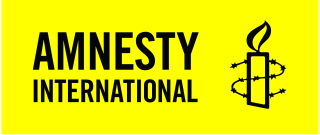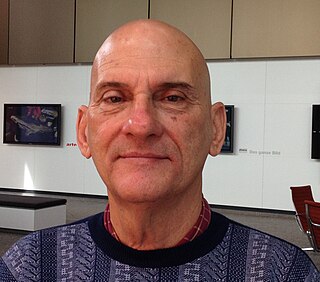| Omar Pernet Hernández | |
|---|---|
| Known for | Cuban dissident, human rights activist |
Omar Pernet Hernández is a Cuban librarian, human rights activist, and a former political prisoner.

Cuba, officially the Republic of Cuba, is a country comprising the island of Cuba as well as Isla de la Juventud and several minor archipelagos. Cuba is located in the northern Caribbean where the Caribbean Sea, Gulf of Mexico and Atlantic Ocean meet. It is east of the Yucatán Peninsula (Mexico), south of both the U.S. state of Florida and the Bahamas, west of Haiti and north of both Jamaica and the Cayman Islands. Havana is the largest city and capital; other major cities include Santiago de Cuba and Camagüey. The area of the Republic of Cuba is 110,860 square kilometres (42,800 sq mi). The island of Cuba is the largest island in Cuba and in the Caribbean, with an area of 105,006 square kilometres (40,543 sq mi), and the second-most populous after Hispaniola, with over 11 million inhabitants.
He was imprisoned during the Black Spring in 2003 and released to exile in Spain in 2008. [1] [2] Amnesty International considered him a prisoner of conscience. [3]

Black Spring refers to the 2003 crackdown on Cuban dissidents. The government imprisoned 75 dissidents, that included 29 journalists, as well as librarians, human rights activists, and democracy activists, on the basis that they were acting as agents of the United States by accepting aid from the US government. Although Amnesty International adopted 75 Cubans as prisoners of conscience, according to Cuba "the 75 individuals arrested, tried and sentenced in March/April 2003 ... who were jailed are demonstrably not independent thinkers, writers or human rights activists, but persons directly in the pay of the US government ... those who were arrested and tried were charged not with criticizing the government, but for receiving American government funds and collaborating with U.S diplomats."

Spain, officially the Kingdom of Spain, is a country mostly located in Europe. Its continental European territory is situated on the Iberian Peninsula. Its territory also includes two archipelagoes: the Canary Islands off the coast of Africa, and the Balearic Islands in the Mediterranean Sea. The African enclaves of Ceuta, Melilla, and Peñón de Vélez de la Gomera make Spain the only European country to have a physical border with an African country (Morocco). Several small islands in the Alboran Sea are also part of Spanish territory. The country's mainland is bordered to the south and east by the Mediterranean Sea except for a small land boundary with Gibraltar; to the north and northeast by France, Andorra, and the Bay of Biscay; and to the west and northwest by Portugal and the Atlantic Ocean.

Amnesty International is a London-based non-governmental organization focused on human rights. The organization says it has more than seven million members and supporters around the world.







